How does someone go from being a respected son, father, friend, upstanding member of the community, and straight-shooting referee for 13 seasons in the NBA, to a convicted felon sentenced to 15 months in prison and three years probation for conspiracy to engage in wire fraud and transmitting wagering information through interstate commerce? How do fellow lifelong best friends become embroiled in the scandal and find themselves with similar convictions and incarcerations? That’s what we watch unfold with INSIDE GAME.
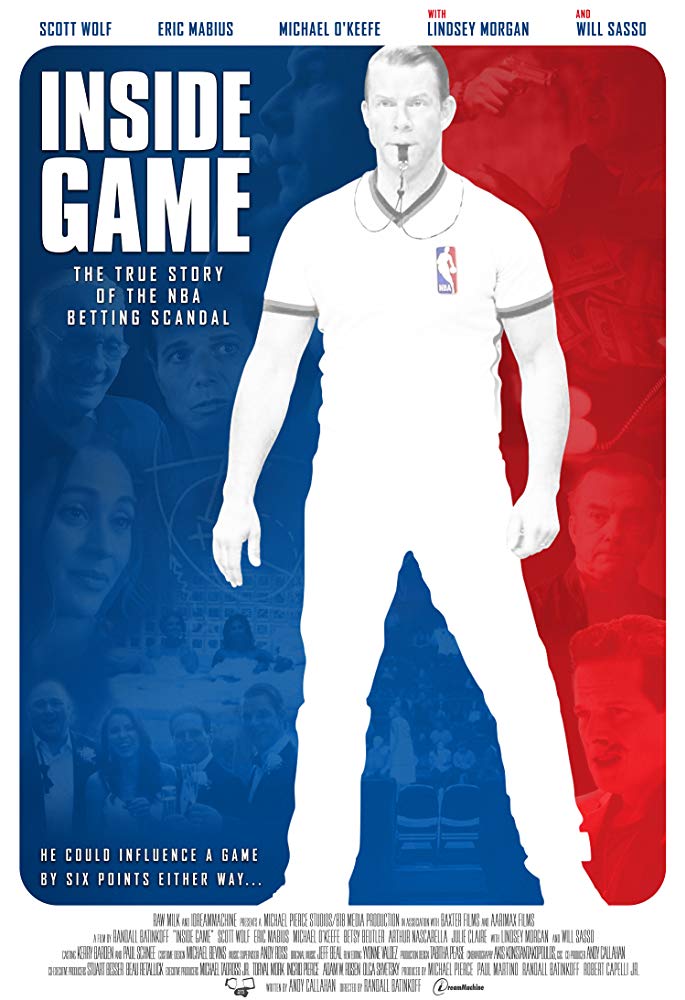
Sounds like fiction, doesn’t it? Unfortunately, it’s not. In 2007, Tim Donaghy, James “Baba” Battista, and Tommy Martino, best friends since their days of shooting hoops at Cardinal O’Hara High School in suburban Philadelphia, were arrested and prosecuted for one of the biggest scandals to rock the NBA. Donaghy was a respected NBA referee. Battista was a big-time bookie with mob connections in the Havertown area outside Philly. Tommy Martino was the “go-between” for Battista and Donaghy, the latter who was relaying coded inside info on NBA games in an effort to control the point spread of games. Ironically, the NBA was not aware of Donaghy’s own betting until it came out during a widespread organized crime investigation by the FBI.
While a book written by Donaghy and subsequent documentary have been done, there has never been a narrative version of the story or a look at these three men – Donaghy, Battista, and Martino – and the ties that bind their friendship through life; that is, until now.
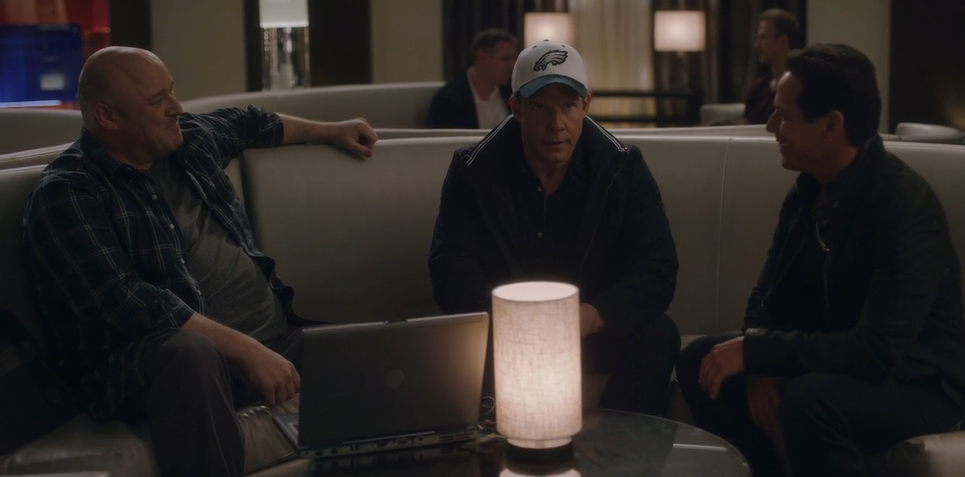
Directed by Randall Batinkoff with script by Andy Callahan, we meet Tim, Baba, and Tommy, perfectly played by Eric Mabius, Will Sasso, and Scott Wolf, respectively. We get to know them as kids on the court and as adults up to the time of trial. However, INSIDE GAME isn’t about the trial and the legal ramifications of their actions. This is about the boys themselves; who they are, who their families are, how their bond became so strong, and what led them down this path.
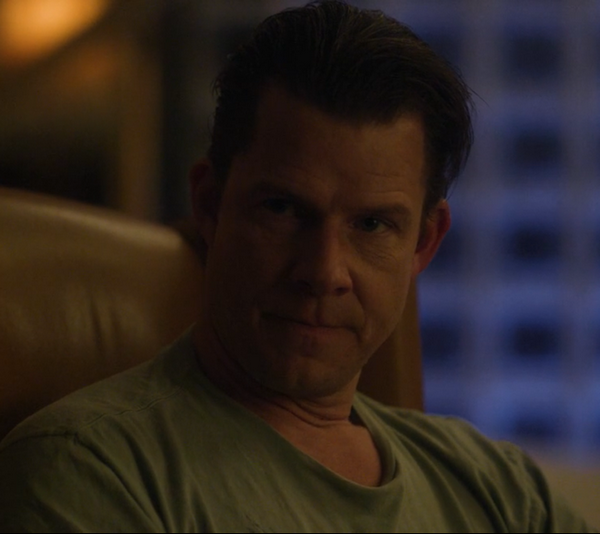
Thanks to strong story construct by Callahan which is thereafter built upon by Batinkoff’s keen direction, attention is paid both on the page and on the screen to the individual and collective lives and personalities of each. We like them. We get to know them. The story is constructed, with editing following through building to the third act, so that it showcases what each stands to lose so that when the FBI is knocking on the door, we as moviegoers truly understand not only the ramifications of what these men did, but why. These were no longer boys on the basketball court in elementary school. This was life as adults but they played at it like it was still a game. Coming from the suburban Philly area myself and knowing the little neighborhood pockets and the stronger than blood connections that are forged among many during elementary school days and continuing onward, it is not surprising to see this triumvirate of Tim, Tommy, and Baba still together and with ties that go deeper than that which each may have with wives or girlfriends. It’s an interesting dynamic to watch and one which is captured perfectly here, endearing them to us even more which, in turn, pisses one off at their stupidity with this gambling and betting scheme.
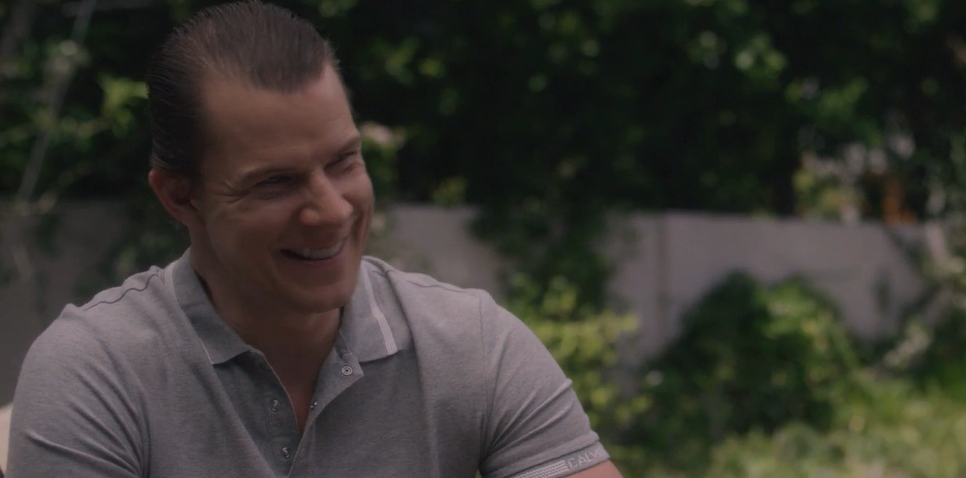
While editing and pacing of INSIDE GAME is critical to its success, casting is even moreso. Eric Mabius is ideal as Tim Donaghy. This is an Eric Mabius we haven’t seen before and he’s terrific. Stoic. Quiet. Pensive. Serious. But with moments of lightness and frivolity. Suits the character and his profession. Mabius does an outstanding job. One of Mabius’ most affecting scenes, however, comes opposite Michael O’Keefe who pays Tim’s father. In a real “come to Jesus” moment of being lectured about “manning up” and taking responsibility for his actions, Mabius makes us feel every bit of the 30-something little boy being chastised by his father. Beyond touching.
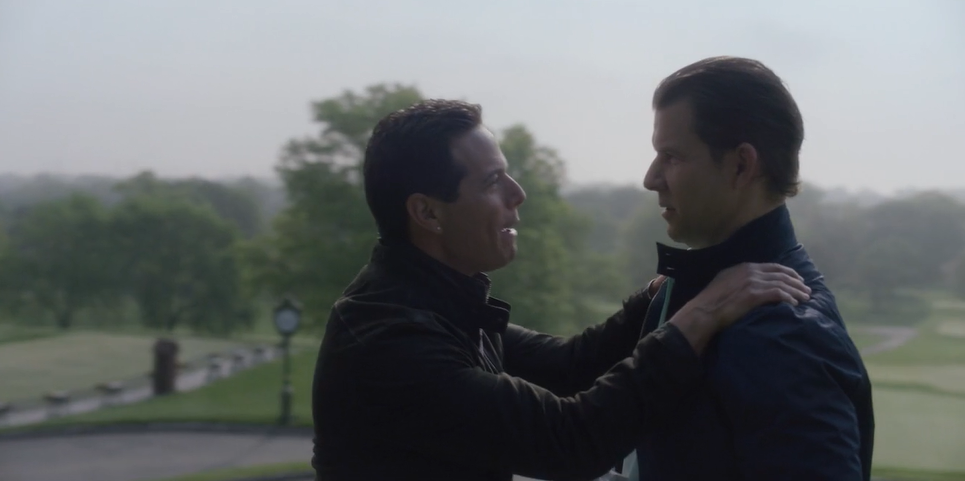
Then we’ve got Scott Wolf as Tommy who serves as a perfect wingman to Baba. Tommy is really our entre into this friendship, this world, and this story. Following through on that, approximately 90% of the shots of Wolf are at eye-level. No dutching, no power positioning. Eye level. He is our eyes. And Wolf provides effective voiceover narration at key points of the chronology.
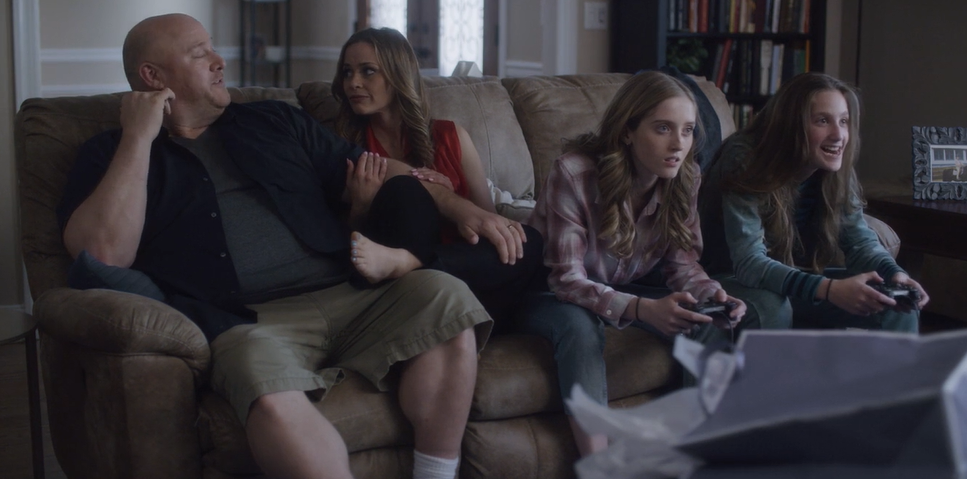
Betsy Beutler is a kick in the ass as Baba’s wife, Debbie. It’s no secret that she knows what Baba does, but you also get the sense that she may have been the mastermind behind it. Baba is smart and can hustle and talk, but he’s not the brains who put it all together. Beutler is a dynamo in this role.
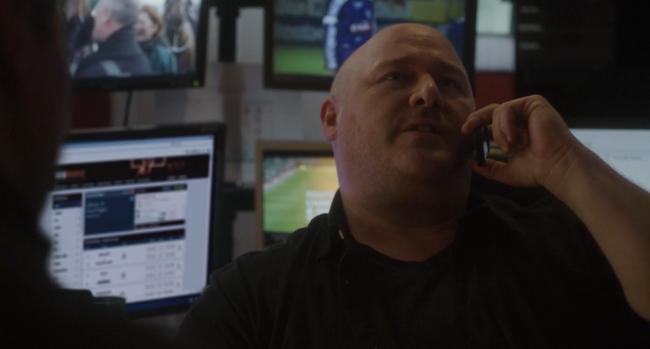
But it’s Will Sasso who owns this film. He is the game-winner here. The first third of the film is driven by Sasso and his performance and energy as Baba. Upbeat, happy, fun-loving. He sets the initial tone of the film and draws us into this triumvirate of fun. You can’t help but adore him. And the score for this first third of the film mirrors Baba’s personality and establishes the perfect lyricism and pacing for the film’s editing.
Thanks to Batinkoff’s intuitive and sharp eye as both a director and a decades-long actor, he is able to feel the tonal shift of story with an ease many directors may not. Displaying great growth as a director since his freshman outing with “37″, Batinkoff demonstrates more sure-footedness and confidence in the design and execution of lighting, framing, and editing as storytelling tools.
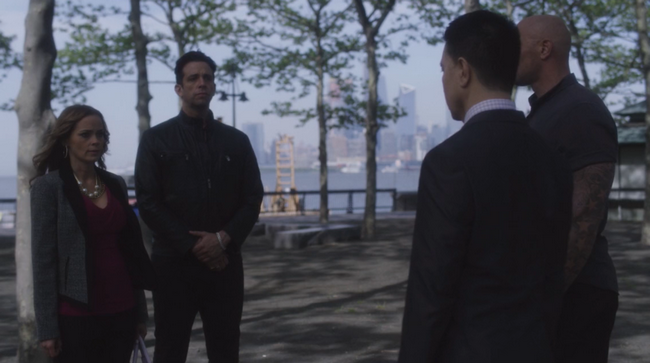
Calling on the talents of cinematographer Akis Konstantakopoulos, the majority of the film relies on natural light. Very judicious and effective use of slo-mo also comes into play. Slight color saturation metaphorically speaks to the insanity and edginess of what the boys are doing and the whole “WTF” question which is undoubtedly running through the minds of the audience the deeper we go behind the scandal.
Although the bulk of the film takes place in suburban Philly, Batinkoff shot in New Jersey with locations that mirror the architecture and economic status of the real-life locations where this story unfolds.
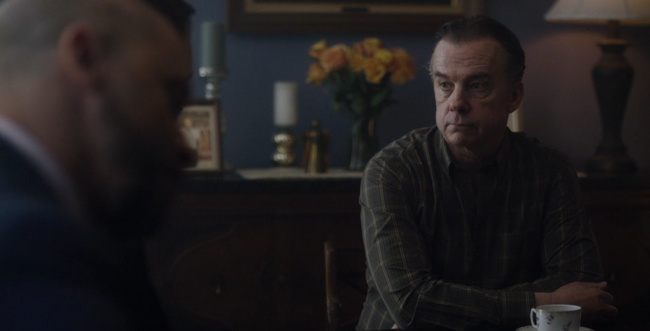
Notable is the tonal shift of the film near the middle of the second act. After a beautiful, fun, montage of multiple money exchanges, shopping spree purchases for family members, and happy happy boys, the FBI pops up, and not just in passing. We also see the rabbit hole into which each starts to descend with carelessness, drugs, alcohol, unnecessary risk-taking. As a crisis of conscience starts setting in with Tommy leading the charge of concern, the camera starts to move in tighter on each of their respective selves, metaphorically speaking to the walls closing in. Tim remains stoic and tightly framed while the camera is tighter but a bit more fluid with Baba. The camera shows us the tonal shift of the unfolding story.
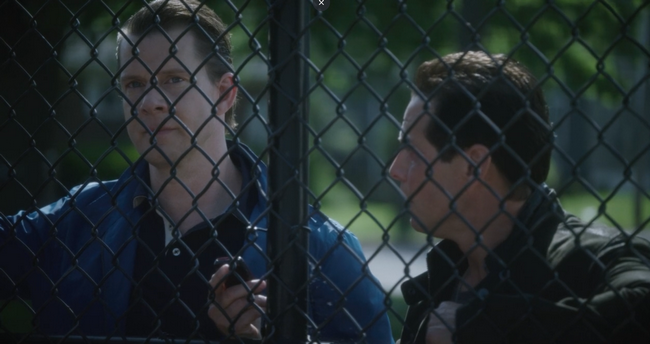
Striking is that the visual tonal bandwidth and specific lensing trickles over into Jeff Beal’s score which goes from lyrical, upbeat, danceable, and fluid to dark and fading. Needle drops disappear from the aural palette. The stakes are high and we feel them. By the third act, there are moments where there is barely, if any, audible score so we are paying even closer attention to the events at hand.
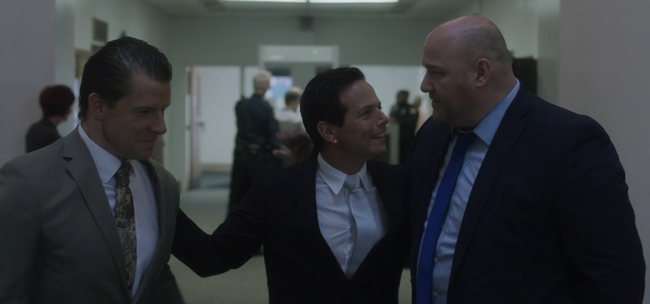
At the end of the day, however, what is most appreciated about INSIDE GAME is that we aren’t drowning in the minutiae of the sport. We get enough basketball references to whistles and 3-pointers so we know what game we’re playing, but the focus isn’t that. Similarly, while Baba gives rapid-fire explanations to Tommy about moving money and playing the spread, there is no harping on the logistics. Explain it once, maybe twice and that’s it. And the way Konstantakopoulos shoots this and the fabulous pacing and energy editor Yvonne Valdez cuts with, harkens to “Molly’s Game”. Like “Molly’s Game” which dealt with cards, the focus of INSIDE GAME is not the game itself, but the individuals and what drives a person to break the law to pursue this kind of action, this kind of thrill, this kind of addiction. This story is about the three men; their lifelong friendship, the ties that bind, the boys club, the “I’ve got your back no matter what club.” But sooner or later, someone’s back is gonna break. It’s just a question of who and when. That is the heart and soul of this story. We’re all just human.
Directed by Randall Batinkoff
Written by Andy Callahan
Cast: Will Sasso, Eric Mabius, Scott Wolf, Michael O’Keefe, Betsy Beutler
by debbie elias, 10/04/2019











